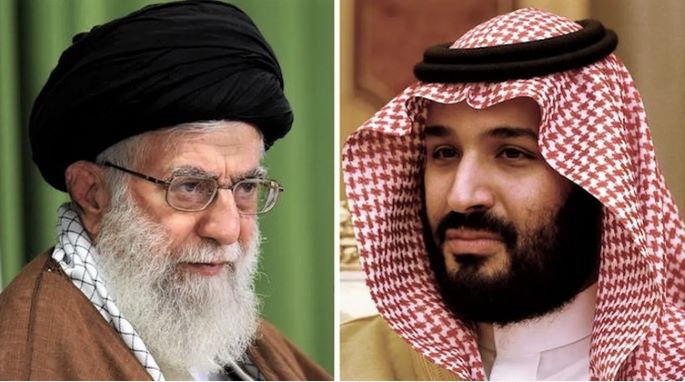The US sphere of influence in the Middle East appears to be changing as the China-brokered peace talks between Saudi Arabia and Iran have resulted in a reconciliation of sorts between the two countries. After lengthy negotiations in Beijing, the two countries have now agreed to resume diplomatic relations and re-open embassies within a few months.
The complicated relationship between Saudi Arabia and Iran has long been characterized by tension, competition, and hostility for many decades. The two countries are regional powers and have significant influence in the Middle East, but they have very different political systems, ideologies, and strategic interests.
Saudi Arabia's relationship with Iran can be traced back to the Iranian Revolution in 1979, when Iran's monarchy was overthrown and replaced by an Islamic republic. The new government in Iran adopted an anti-Western and anti-Saudi rhetoric, which alarmed Saudi Arabia and other Gulf countries that saw Iran as a potential threat to their own security and stability.
Since then, Saudi Arabia and Iran have been involved in a number of proxy conflicts in the region, supporting opposing sides in conflicts such as the Lebanese civil war, the Iraq-Iran war, and the ongoing conflict in Yemen. They have also been involved in a war of words, with each side accusing the other of supporting terrorism, destabilizing the region, and interfering in their internal affairs.
In recent years, the relationship has been further strained by a number of events, including the Arab Spring uprisings, the Iran nuclear deal, and the killing of Saudi journalist Jamal Khashoggi in 2018. Saudi Arabia has accused Iran of supporting Houthi rebels in Yemen, launching attacks on Saudi oil facilities, and destabilizing the region, while Iran has accused Saudi Arabia of supporting terrorism and suppressing democracy and human rights.
According to Middle East Eye, "Diplomatic relations between the two countries have been strained since the 2016 execution of the Saudi Shia cleric Nimr al-Nimr, a critic of the Saudi monarchy, and dozens of his supporters. Attacks by Iranian protesters on the Saudi embassy in Tehran following the execution prompted Riyadh to cut diplomatic ties with Iran. Tensions were also exacerbated by the deadly Saudi-led war on Iran-aligned rebels in Yemen since 2015 and the deaths of hundreds of Iranian Hajj pilgrims in a stampede in the same year. "
With this new agreement, the two countries have turned over a new leaf in their relationship as each side pursues their interests.
Now, speculation exists that Saudi Arabia will cement ties with Syria after shunning it for years.
Saudi Arabia's relationship with Syria has been complex and often strained. While both countries are members of the Arab League and share a common language and culture, their political ideologies and strategic interests have often diverged.
During the Cold War, Saudi Arabia and Syria were on opposite sides of the ideological divide, with Saudi Arabia being closely aligned with the United States and the West, while Syria was aligned with the Soviet Union and the Eastern Bloc. This led to tensions between the two countries, especially during the 1970s and 1980s.
In more recent years, Saudi Arabia and Syria have been at odds over Syria's civil war, which began in 2011. Saudi Arabia has been a strong supporter of the Syrian opposition, providing them with weapons and financial support, while Syria's government, led by President Bashar al-Assad, has been backed by Iran, a rival of Saudi Arabia.
In 2011, Saudi Arabia withdrew its ambassador from Damascus and condemned the Syrian government's crackdown on opposition protests. The following year, Saudi Arabia became a founding member of the Friends of Syria Group, which seeks to support the Syrian opposition and provide humanitarian aid to civilians affected by the conflict.
In 2018, Saudi Arabia reopened its embassy in Damascus, signaling a possible shift in its position on the Syrian conflict. However, the relationship between the two countries remained complicated and fraught with tension, as Saudi Arabia continued to view Syria as a key ally of Iran, and the two countries continued to support opposing sides in the Syrian conflict.
But the new Iran-Saudi agreement changes all of this.
According to the Reuters report, the re-establishment of ties between Riyadh and Damascus "would mark the most significant development yet in moves by Arab states to normalize ties with Assad, who was shunned by many Western and Arab states after Syria's civil war began in 2011."
If Syria were to reestablish relations with Saudi Arabia, there could be several potential benefits for the country.
(Note: You can view every article as one long page if you sign up as an Advocate Member, or higher).





